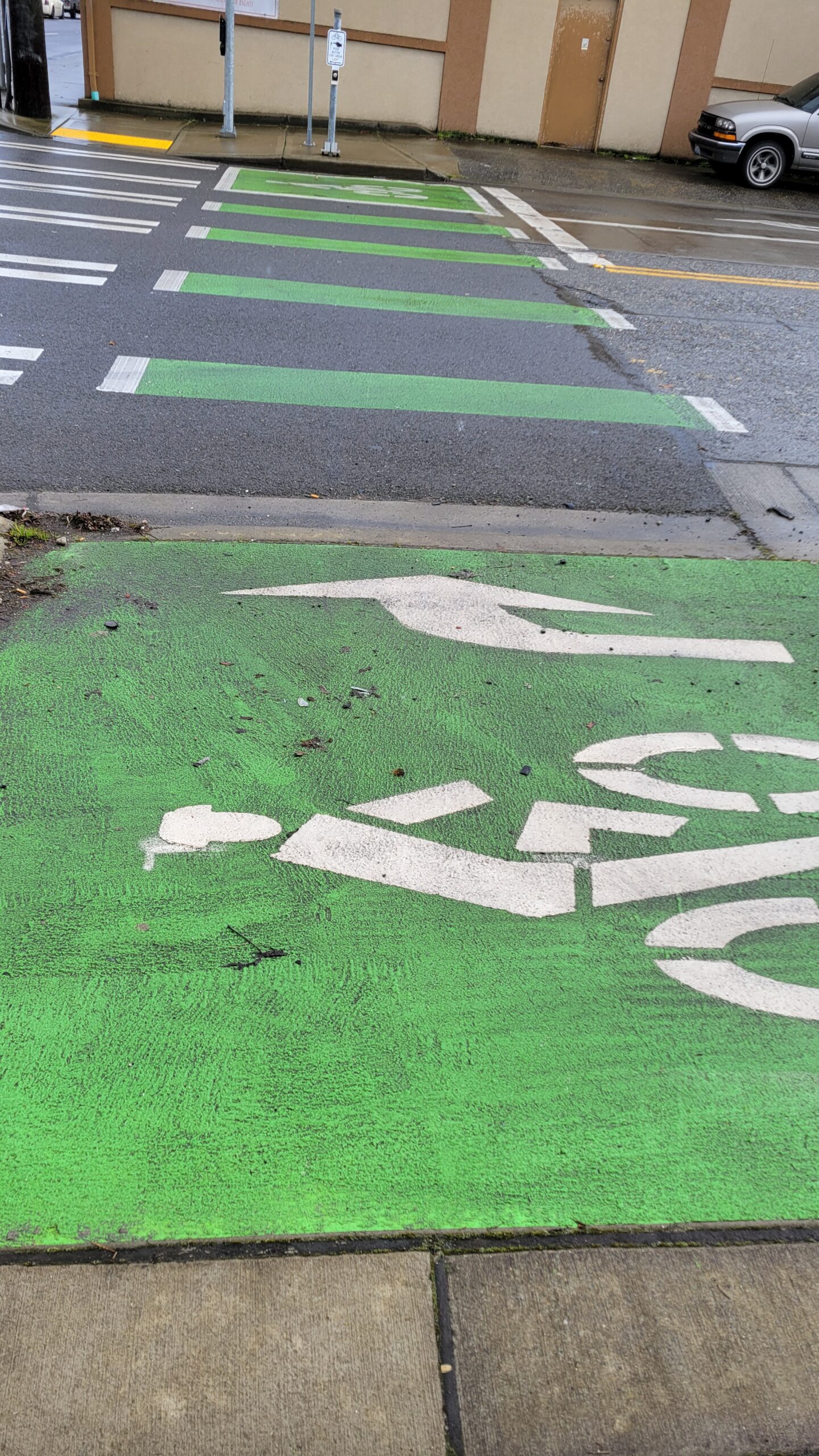Many of my stories about who I am and the way I operate in the world start with a story about my mom. This is true about my bicycling even though I never saw my mom on a bike.
She raised me as a feminist without ever using the F word. Mom gave me the clear message that I should be able to take care of myself rather than relying on a man to do so, having seen her own mom learn that lesson the hard way when she was widowed in her 50s.
Maybe that’s one of the reasons I love being on my bike. I feel capable of taking care of myself in a way I’ve never felt in a car. I am more in control of – and much more conscious of — my route, my options, my decisions about what makes me feel powerful or weak, safe or threatened, knowledgeable or insecure. I feel stronger for riding even as I recognize and respect my own limitations.
The mindfulness bicycling gives me isn’t something I consciously remember to carry into every room or encounter but I believe it gives me a different way of being in space and time. I’m more able to surrender to “what is” rather than stressing over “but it SHOULD be this way” – because when I’m on my bike I can only go as fast as I can go.
This sense of acceptance – equanimity – translates well into meetings and discussions that might otherwise be stressful. I can step back emotionally, take a breath, let things settle down, similar to taking a minute to rest and catch my breath before tackling the hill (and maybe pushing my bike up rather than pedaling because sometimes that’s all you’ve got in your legs and at least you’re still moving).
I’m going to guess this same acceptance doesn’t come as easily to people motivated by competition or the need to claim a King of the Mountain crown, however briefly. I’m just getting up the hill, not trying to get there first or fastest.
Getting up the hill or around the bend under my own steam also gives me a sense of knowledge and strength that reaches beyond the bike. While I’m riding simply to get somewhere I’m also proving the point that bikes are practical transportation. When I walk into a meeting with my helmet I’m asserting this without saying a word. By being there as a woman who rides a bike in everyday clothing I am saying that bicycling is not only for the fit, fast, fearless – and male.
I happen to work in transportation now so this is a particularly salient point to make. But it’s a point each of us can make. Our biking is the source of both knowledge and power as consumers and as engaged community residents (which are only two of the many identities and roles each of us carries).
When we go into a coffee shop, grocery store, or laundromat and ask where their bike parking is, we’re saying, “You have customers who bike here to give you their money.”
When we call to get transportation information about a public meeting and ask where we can park our bikes and if the location is served by transit, we’re saying they need to plan meetings accessible to everyone, not just to people who can drive there.
When we hear our school district is planning a bond vote to build or renovate schools we can ask what provisions they’re making so kids can walk and bike on safe routes – and say that we only work on campaigns that create healthy schools.
In all of this I can’t help but see parallels to the best of feminism. When women worked together to point out the ways in which the world assumed male power, male privilege, male authority as the default setting and by doing so shut off opportunities, we changed things. When we now point out the ways in which the design of our communities has long assumed car travel as the default setting and shut off opportunities, we are again changing the world.
As with feminism, assertion of our bike power has to come with acknowledgement of privilege and an ability to learn from the mistakes of the past. My mom used to tell me that I was a very lucky girl and that because of that, I had a responsibility to help others who weren’t as fortunate. Before the word “privilege” was in mainstream use and before a movie was titled “Pay It Forward,” my mom taught me those concepts. She taught me that I shouldn’t wait around for someone else to take care of me, that I need to act to make the world a better place for everyone. Riding my bike has reinforced Mom’s lessons.
What is time on your bike teaching you? What are you doing with those lessons?









Thanks for sharing your experience, Cheryl, and congratulations on getting a bikeable job! With each year I ride I’m also helping raise the average age. I do think it’s slowing the internal chronometer on my body’s aging. Even if it isn’t, it brings me joy.
Thanks for writing! I just accepted a contract job and can bike there. It’s a big joy to bike slowly, thinking and planning in the morning and absolutely race home. Nice, shady, flat streets and my friends on a bike blvd. I definitely bring the average age up but maybe it’ll help keep me young. Thanks for your inspiring writing 🙂